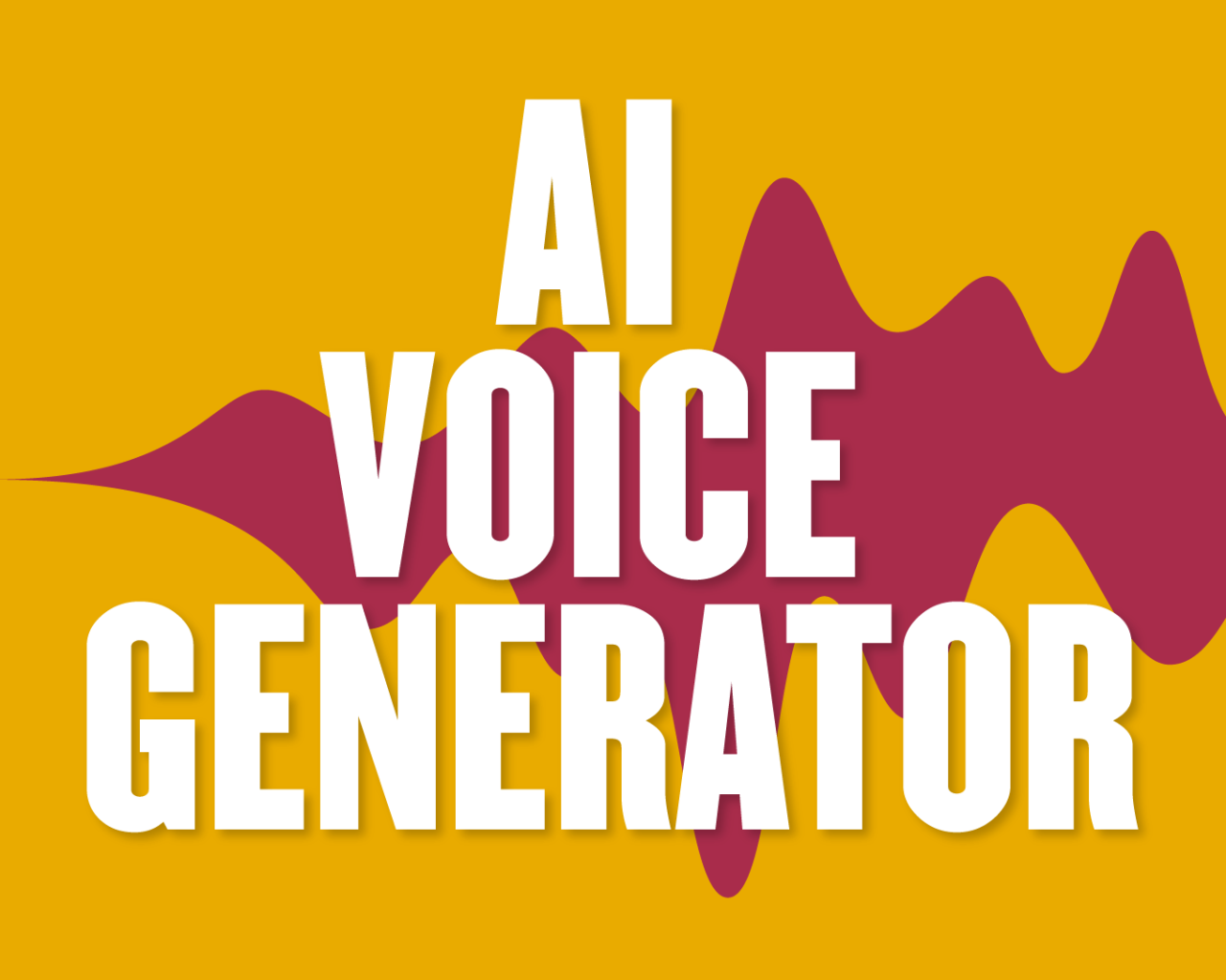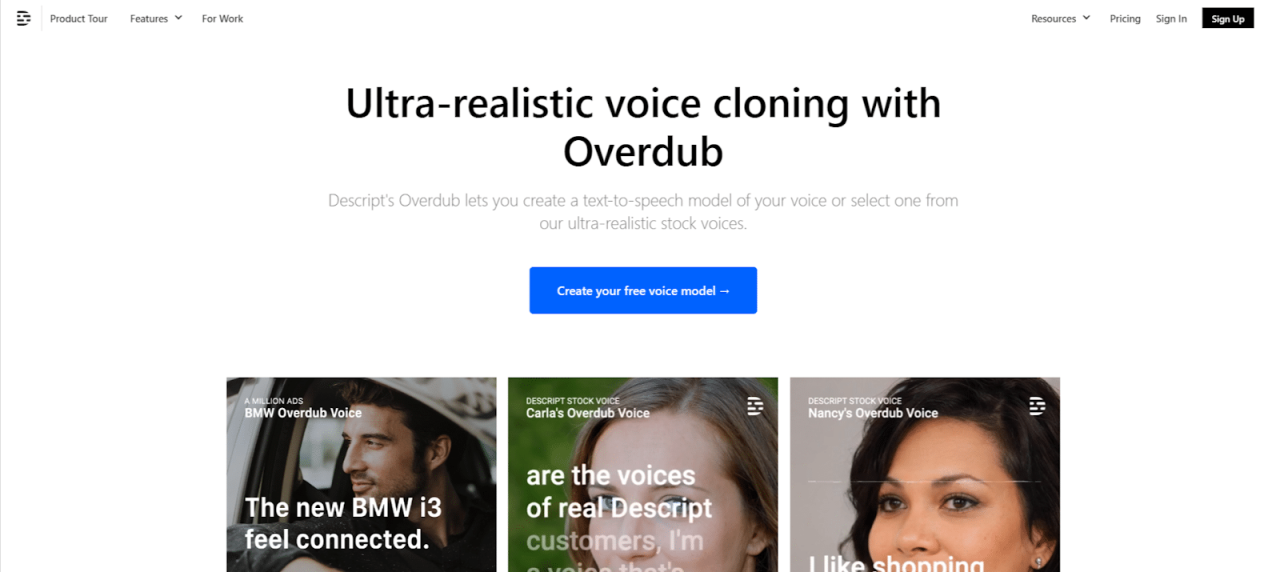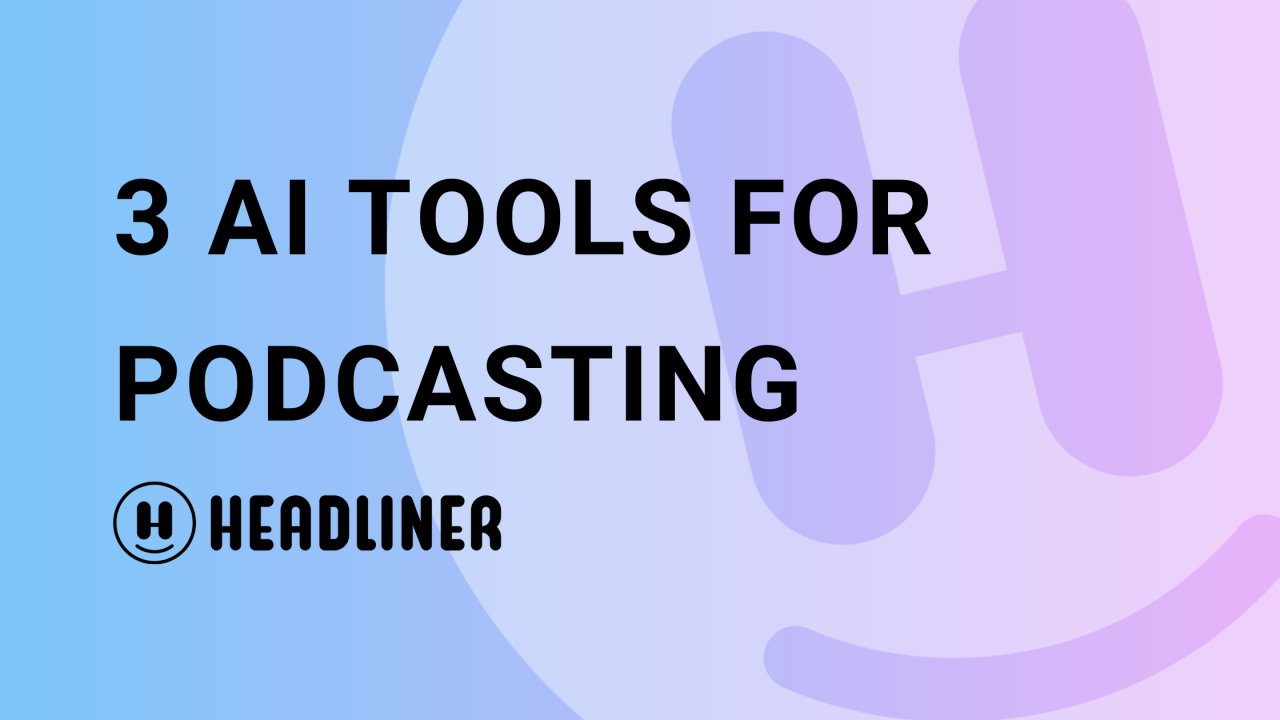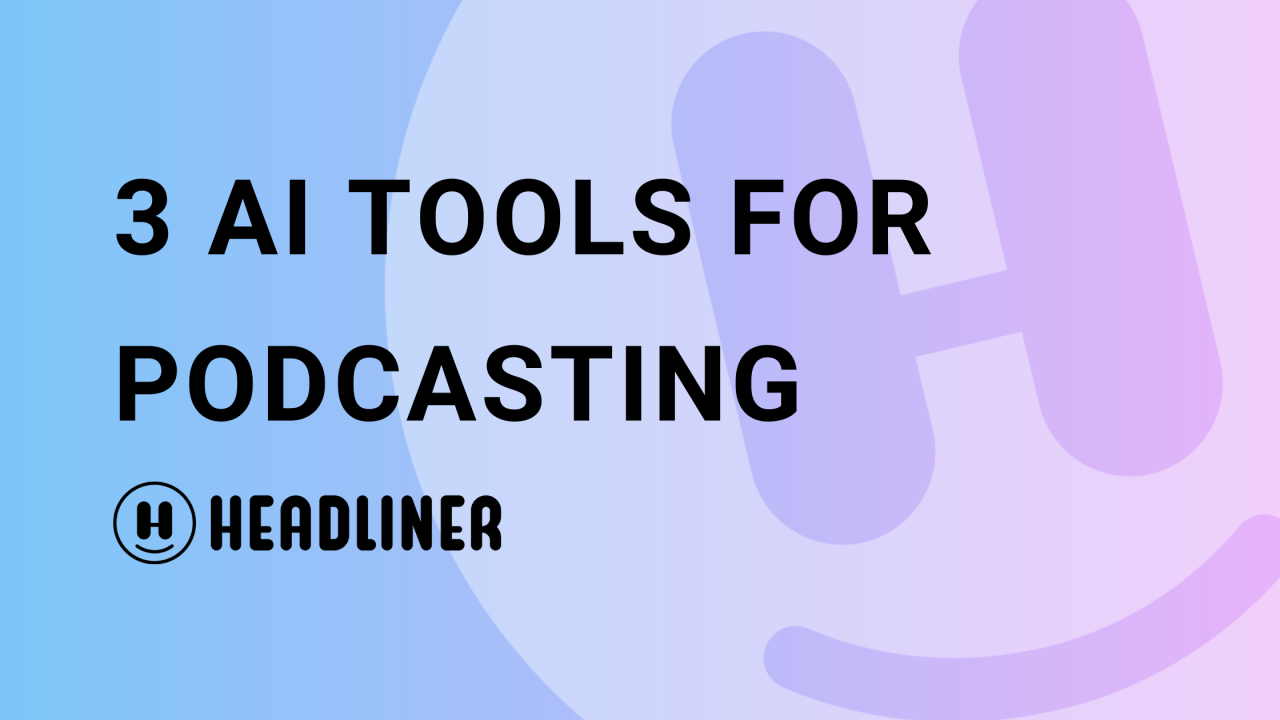Finding the right AI voice generator for podcasting is crucial for creating a professional and engaging listening experience. This guide will walk you through the process of selecting the perfect AI voice, covering everything from understanding your podcast’s specific needs and evaluating voice quality to exploring customization options and integrating the generator into your workflow. We’ll also delve into the cost considerations and help you navigate the various options available, ensuring you find a solution that fits your budget and technical skills.
We’ll compare different AI voice generators, highlighting their strengths and weaknesses for podcasting. We’ll discuss key features like text-to-speech capabilities, voice customization, and integration with editing software. Learn how to assess voice naturalness, considering factors like intonation, pacing, and pronunciation. We’ll show you how to choose voices that suit different podcast genres and create a unique, consistent brand voice.
Finding the Right AI Voice Generator for Podcasting

Launching a podcast requires careful consideration of many factors, and choosing the right AI voice generator is crucial for success. This guide provides a practical, step-by-step approach to selecting and using an AI voice generator for your podcast, covering everything from understanding your podcasting needs to integrating the technology into your workflow.
Podcast Needs and AI Voice Generator Features
The success of your podcast hinges on audio quality and the features your AI voice generator offers. Essential audio qualities include clarity, naturalness, and emotional range. A clear voice ensures easy understanding, while a natural voice enhances listener engagement. Emotional range adds depth and personality to your podcast, making it more captivating.
When selecting an AI voice generator, consider these key features: text-to-speech capabilities (accurate and fast conversion), voice customization options (pitch, tone, speed, accent), and seamless integration with your podcast editing software (Audacity, Adobe Audition, GarageBand etc.). Different AI voice generators offer varying capabilities. Some are cloud-based, requiring an internet connection, while others are desktop applications, offering offline functionality. Pricing models range from subscriptions to one-time purchases, each with its own cost implications.
Here’s a comparison of four popular AI voice generators:
| Name | Pricing | Key Features | Best Use Case |
|---|---|---|---|
| Murf.ai | Subscription-based | Wide range of voices, excellent naturalness, easy integration, multiple languages | Narrated podcasts, audiobooks, explainer videos |
| NaturalReader | Freemium model (free with limitations, paid subscription for full access) | Many voices, text-to-speech, supports various file formats | Short podcasts, educational content, quick voiceovers |
| Speechify | Subscription-based | Focus on natural-sounding voices, good for long-form audio, cross-platform compatibility | Long-form podcasts, audiobooks, accessibility needs |
| ElevenLabs | Credit-based system | High-quality, customizable voices, strong focus on naturalness and emotion | Podcasts requiring nuanced emotional delivery, character voices |
Evaluating Voice Quality and Naturalness
The perceived naturalness of an AI-generated voice depends on several factors: intonation (rise and fall of pitch), pacing (speed and rhythm of speech), and pronunciation (accuracy and clarity of word sounds). A monotone voice can be monotonous and unengaging, whereas a voice with varied intonation sounds more natural and expressive. Fast pacing can make it difficult to follow, while slow pacing can be boring.
Inaccurate pronunciation detracts from the overall quality.
Different voice styles influence listener experience significantly. A formal voice suits news podcasts, while a friendly, conversational tone is better for interviews or casual discussions. A comedic voice works well for comedy podcasts. To evaluate voice quality, assess clarity, intonation, and emotional expression. Listen for robotic inflections, unnatural pauses, or inconsistencies in pronunciation.
Consider whether the voice style aligns with your podcast’s genre and target audience.
Exploring Voice Customization and Personalization
AI voice generators allow for extensive customization. You can adjust pitch (high or low), tone (warm or cold), speed (fast or slow), and accent (American, British, Australian, etc.). Creating a unique and consistent voice for your podcast establishes a strong brand identity, making your podcast instantly recognizable. A consistent voice fosters familiarity and loyalty among listeners.
Achieving a natural and engaging sound involves experimenting with different voice settings. Start by selecting a base voice that aligns with your podcast’s tone. Then, fine-tune the parameters to create the desired effect. Avoid overly exaggerated settings, which can sound unnatural. A step-by-step guide might involve: 1.
Selecting a base voice; 2. Adjusting the pitch and tone; 3. Fine-tuning the speed; 4. Adding accents; 5. Testing and iterating until satisfied.
Picking the perfect AI voice for your podcast is key; you want something engaging and professional. Need a break from the tech talk? Check out the highlights of the India vs Australia, 5th Test, Day 2, focusing on Rishabh Pant’s amazing performance: India vs Australia, 5th Test, Day 2 Highlights: Rishabh Pant’s. Then, get back to choosing that perfect AI voice – your listeners will thank you!
Integration with Podcasting Workflows, Finding the right AI voice generator for podcasting

Integrating AI voice generators into your workflow is straightforward. Many generators offer direct export options to common audio formats (MP3, WAV). You can then import these files into your editing software. Some AI voice generators offer plugins or APIs for more seamless integration. Audacity, Adobe Audition, and GarageBand are popular choices for podcast editing, and most are compatible with various AI voice generator outputs.
Best practices include preparing your script meticulously, experimenting with different voices, and editing the AI-generated audio to ensure smooth transitions and consistent quality. Exporting AI-generated audio usually involves selecting the desired format (MP3 for wide compatibility) and adjusting the bitrate and sample rate for optimal audio quality. Remember to always proofread your script before generating the audio to avoid errors.
Cost and Accessibility Considerations

AI voice generator pricing varies widely. Some offer free plans with limitations, while others use subscription models or a credit system. Factors influencing cost include subscription fees, usage limits (number of characters or minutes), and access to advanced features (like custom voices or emotional control). Podcasters with limited budgets can explore free or low-cost options, but be aware of limitations such as fewer voice options, watermarks, or usage restrictions.
- NaturalReader (Free Tier): Limited usage, watermarks on output.
- Some cloud-based platforms offer free trials: Allows testing before committing to a paid subscription.
Last Recap: Finding The Right AI Voice Generator For Podcasting
Choosing the right AI voice generator for your podcast is a journey of balancing quality, features, and budget. By understanding your podcast’s needs and carefully evaluating different options, you can create a polished, professional sound that captivates your listeners. Remember to consider factors like voice naturalness, customization options, and workflow integration to make an informed decision. With the right AI voice, your podcast can reach new heights of engagement and success!
Questions and Answers
What file formats do AI voice generators typically output?
Common formats include MP3, WAV, and sometimes others depending on the specific software.
Can I use an AI voice for commercial purposes?
Check the license agreement of your chosen AI voice generator. Some offer commercial licenses, while others may restrict use.
Picking the perfect AI voice for your podcast is key; you want something engaging and professional. Totally unrelated, but did you hear the news? O’s agree to 1-year deal with veteran SP Charlie Morton , which is awesome news for baseball fans. Anyway, back to your podcast – consider testing a few different AI voice generators before committing to one, paying attention to naturalness and clarity.
How much processing power do I need to run a desktop AI voice generator?
Picking the perfect AI voice generator for your podcast can be tricky! You need one that sounds natural and fits your style. Think about the tech side too; sometimes, creating a custom integration might require skills like those of a full stack developer , especially if you’re aiming for advanced features. Ultimately, the best AI voice generator will depend on your specific podcast needs and technical capabilities.
Requirements vary, but generally, a reasonably modern computer should suffice. Check the specific software’s system requirements.
What if the AI mispronounces words?
Most generators allow for manual correction and adjustments to pronunciation. Careful text preparation is key.
